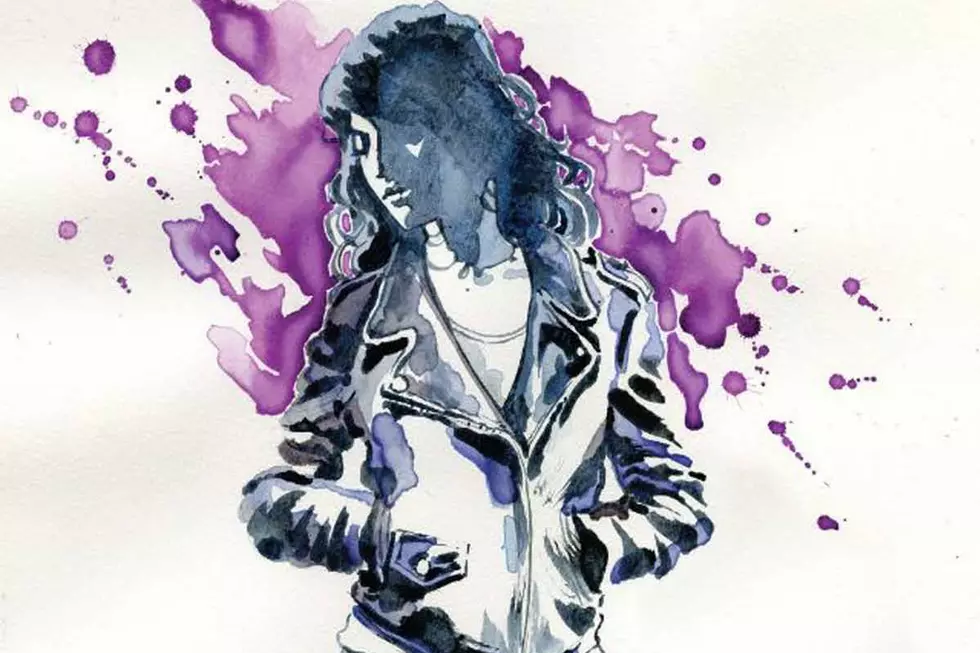![Are Angry Comic Book Fans Better for Sales? [Poll]](http://townsquare.media/site/622/files/2011/05/tom-brevoort-0.jpg?w=980&q=75)
Are Angry Comic Book Fans Better for Sales? [Poll]

In a recent Formspring question and answer with fans, the frequently and refreshingly candid Marvel Executive VP Tom Brevoort answered several questions from fans about whether apathetic fans or angry fans were worse for sales of comic books, and his answer was unequivocal: When it comes to selling comics, it's better to be hated than to be ignored.
 As Brevoort explains in subsequent answers, although it may seem counterintuitive, "bad word of mouth has rare hurt sales on a comic. If anything, it makes more people interested." (Aside to creators of every comic we've ever savaged: You're welcome.)
As Brevoort explains in subsequent answers, although it may seem counterintuitive, "bad word of mouth has rare hurt sales on a comic. If anything, it makes more people interested." (Aside to creators of every comic we've ever savaged: You're welcome.)
The idea that any attention is good attention for comics also hints at one of the reasons why major storylines like the death of Johnny Storm now often break early in the mainstream media before many comic fans have the chance to hit comic shops, despite their clear violation of the Holy Precept of Spoiler Alerts. It's also surely the reason why Action Comics #900 sold out almost immediately after the wave of outrage from conservative commenters over the renunciation of his citizenship.
What it boils down to is the rather obvious idea that controversy sells, but also the fact that it's very difficult for comics publishers to generate the same kind of financial support for solid, critically-acclaimed stand-alone gems like Thor: The Mighty Avenger as it is for "world-changing" mega-crossovers, character-altering stunts, or any plot devices that makes fans' veins pop out of their forehead.

Perhaps my perspective has been warped somewhat by my years of toiling in the internet mines where the purest veins of hatred run deep and wide, but the core principle seems simple: People love to hate. From a blogger's perspective, any article cataloging the Worst of Something invariably gets far more hits than the Best of Something, not to mention exponentially more comments. While this doesn't mean either bloggers or comics creators should compromise their focus on quality or storytelling it's a difficult trend to ignore, especially in the world of comics where monthly sales have been on the decline and capturing the attention of the audience right now is essential.
Of course, any story depends to some degree on conflict; as much fun as it can be to watch your favorite heroes play basketball or eat pizza in their downtime between saving the world and crying tragically over the graves of their loved ones, if that were all they did every week it'd get pretty boring pretty fast. And naturally, readers are going to be more concerned with the stories that they are told "matter," the ones that endanger the universe and the status quo and the characters they hold dear. But what happens when the world starts to seem like it's ending every week, and outrage-inducing stunts themselves become the status quo, not something that interrupts it?

It's a truism among fans that no matter how much certain readers complain and complain about books or stories they hate, they just keep on buying them, and thereby support both the books they dislike and the system that keeps producing them. If I had a dollar for every complaint I've heard from fans about Marvel and DC mega-crossovers I could probably wallpaper my entire apartment in fat hundos, but sales don't lie, and they always go up for events. Our mouths may say no, but our wallets clearly say yes.
If Brevoort is right and if editorial decisions in superhero comics are being driven to a certain degree by the principle of agitation, how do you think that has affected the stories that Marvel and DC have been telling? Are they kind of stories you want to support? Be honest: Do YOU buy the kind of comics that make you frustrated and angry, or the ones that represent the best the industry has to offer?
%Poll-63650%
(via Graeme McMillan)
More From ComicsAlliance




![Silver Surfer, Ghost Rider and Iron Patriot Get New #1s In All-New Marvel Now [NYCC 2013]](http://townsquare.media/site/622/files/2013/10/Silver-Surfer-top.jpg?w=980&q=75)



![Marvel NOW Avengers Panel: Secrets Revealed [NYCC 2012]](http://townsquare.media/site/622/files/2012/10/secretavengerslogo.jpg?w=980&q=75)
